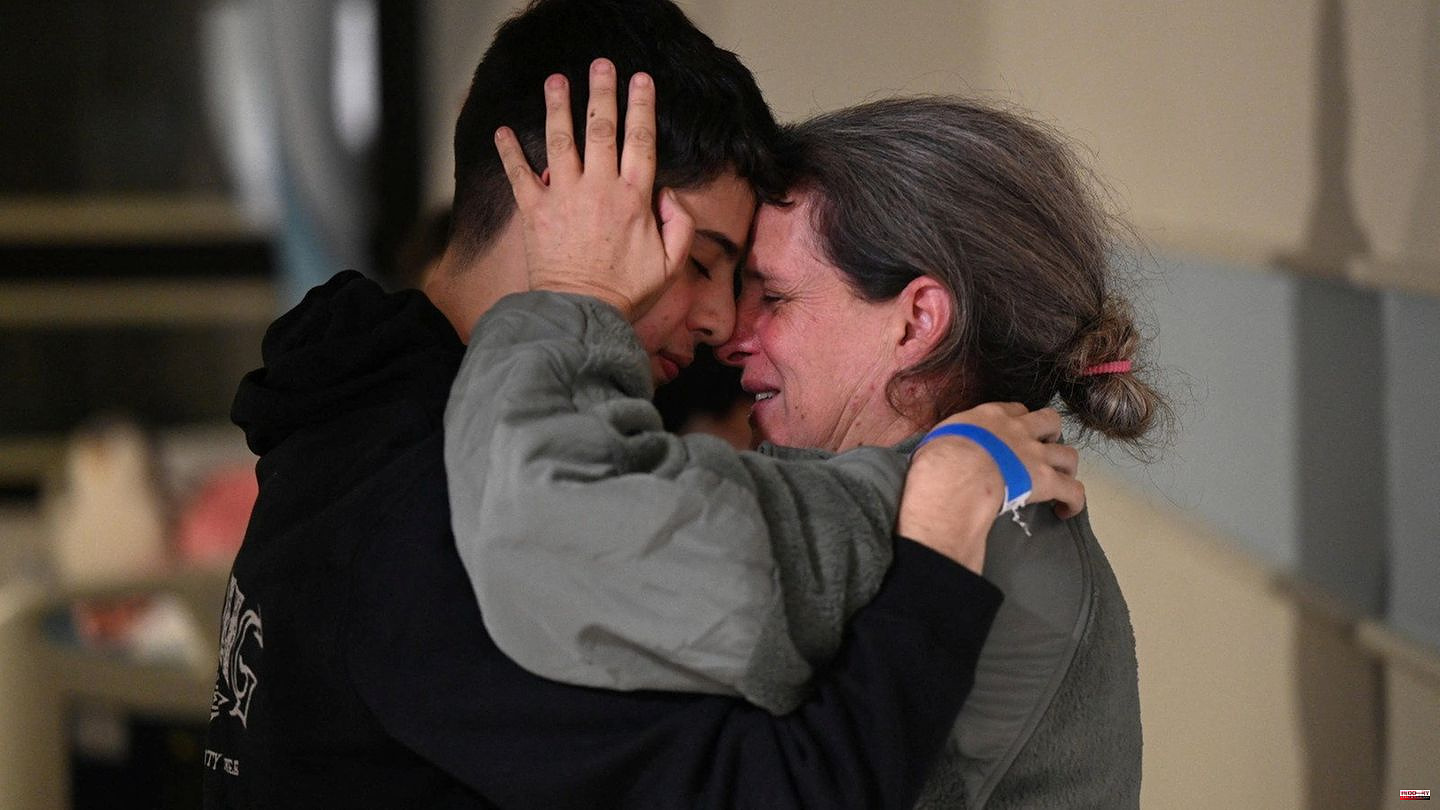Ms. Shapira-Berman, a few days ago Hamas released videos of two Israeli hostages in Gaza. Like many others, they have been held captive by terrorists for over 200 days. What does this experience do to the human psyche? I think they have turned off their minds. It's a mix of severe depression and survival mode. A unique state of mind, because survival instincts are actually not particularly strong during depression. Now, on the one hand, these people are in a state that we in psychology call “learned helplessness”: the feeling that no matter what you do, nothing helps. And on the other hand, they have to be vigilant and prepared for the worst. At least the strongest among the hostages will still cling to the hope of being released.
Isn't this hope fading day by day? Yes. I'm pretty sure many of those who are still alive are either very sick or on the verge of insanity.
It is assumed that many of the approximately 130 remaining hostages are already dead. The oldest hostage is 86 years old. As far as I know, at least ten prisoners are over 77. Others have serious injuries. I'm afraid you can't survive seven months in captivity at this age and in this condition. There is not enough food, drink, or medication.
Ofrit Shapira-Berman is an Israeli psychoanalyst and trauma specialist at the Hebrew University in Jerusalem with over 30 years of experience. Your aid organization “First Line Med” treats hostage families and former Hamas prisoners.
Most are kept in tunnel systems. Without daylight, some probably without fellow prisoners. Are there strategies to mentally survive such a condition? Many hostages who have been released tell us that they looked for daily routines to somehow combat the fear that they could be killed at any moment. Those who were not wounded exercised. Others could play cards or draw in notebooks. A young woman I am currently treating was seriously injured and held captive alone. She couldn't talk to anyone. So she started approaching the terrorists to be liked and not raped.
In special security training, you are taught to pull yourself up using small, positive things while being held hostage: a bottle of water, the toilet, the fact that you survived. That's the way it is. But I wonder if this really helps the people in Gaza. Most of the hostages are not soldiers, but women, children, young men who were never prepared to be in captivity. Nothing can prepare a 19 year old girl for such an experience.
They treat many former hostages and their families. What can you tell you about your time in Gaza? Many were physically and sexually harassed, some were abused. And all of them psychologically abused. Hamas told them that Israel was history, that no one was interested in them, that their kibbutzim no longer existed. And that sooner or later they would die from the Israeli army's bombs anyway. Many believed in it. They were terrified of Israeli military strikes.
The Israeli government currently appears to be on the verge of a deal with Hamas. Do the hostages notice something like this? The most recently released recordings of the two hostages you spoke to indicate this. The two said they were aware of the many demonstrations in Israel demanding a deal. They asked to continue fighting for them. So some people know. Some people haven't even found out what really happened on October 7th. It depends on who exactly is holding the hostages. The terrorists are not all evil and cruel to the same degree. Some are also a little more accommodating than others. There were hostages who were not harmed. And at least three small children who were beaten severely.
Some former hostages also say they were treated well. Can you develop Stockholm syndrome, i.e. compassion for your captors, even in a tunnel full of terrorists? I even believe that many have developed Stockholm Syndrome to some degree. And to our great surprise, this happens not only on the part of the hostages, but also on the part of the kidnappers. Some felt really drawn to their prisoners. This is what makes psychiatric treatment so difficult.
How does the trauma of your patients manifest itself? Some of them are common characteristics: they are anxious, very alarmed. If anyone even knocks on the door, they jump up. In crowds they often turn around because they suspect someone. But what makes her condition so unique: her trauma has been postponed, so to speak. Everyone says independently: They cannot begin their healing process until all their close relatives and friends are released from Gaza. They just wait. Nothing interests her. Nothing gives them joy. I haven't even seen a patient I've been treating for four months cry.
Many did not know until their release that family members were brutally murdered on October 7th. A double trauma? Most people had no idea about it. And here too they can't really mourn because everyone is waiting for all the hostages to be released. A strong bond developed between them during their captivity. But the war continues. Many hostages have no home to return to. You live in a hotel or temporary accommodation. It's like throwing a stone into water. The trauma runs endless circles. When we otherwise treat trauma patients, we always talk to them about a state before the trauma, about a basis to which we want to return. There is no basis here.
Do these people even have a chance at a normal life? I don't think they can return to a normal life. There is no going back. That is lost forever. You have to create a new normal for yourself. And that will be very painful. This also applies to the hostage families. I don't know whether I would have survived if one of my children had been taken to Gaza. I am currently treating a family whose daughter is still being held captive by Hamas. I don't know if she will ever get over this trauma. Her ideas about this world were shattered to her core.
Is there enough capacity in Israel to treat all of these traumas? Of course not. There aren't enough therapists. The survivors of the Nova Festival, for example, are entitled by the state to only twelve psychiatric sessions, with the prospect of twelve more. That was it. Although they are really very traumatized.
French journalist Brice Fleutiaux committed suicide in 2001 after being held hostage for seven months in Chechnya. The Briton Terry Waite was held captive in Lebanon for a total of four years in the 1980s and spent his later life caring for other hostages and their families. People seem to react very differently to such experiences. In the case of the hostages, we will only find out in the future. And it really depends on what they experienced in captivity. It's one thing if a woman was raped. It would be completely different if she even got pregnant from it. The worst cases are still trapped in Gaza.












